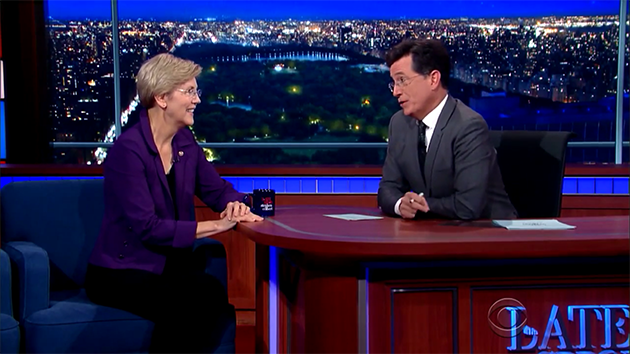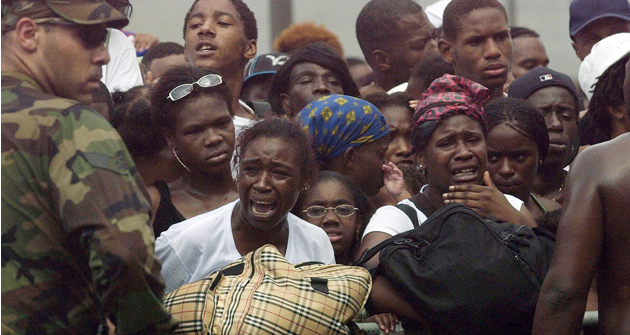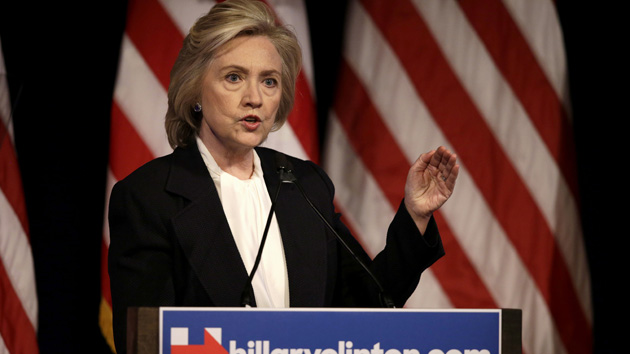In the modern-day fight against racial inequality, activists and policymakers alike should look to the past to change the present.
That’s the message Sen. Elizabeth Warren (D-Mass.) sent on Sunday in a stirring speech at the Edward M. Kennedy Institute for the United States Senate in Boston. Warren called for wide-ranging civil rights reforms to combat racial inequality, from the restoration of voting rights to changes in policing practices.
In a year marked by public outcry over police brutality, Warren echoed the sentiments of the Black Lives Matter movement, drawing connections between the group’s push for social-justice reforms and the civil rights movement of the 1960s.
“None of us can ignore what is happening in this country. Not when our black friends, family, neighbors literally fear dying in the streets,” Warren said. “This is the reality all of us must confront, as uncomfortable and ugly as that reality may be. It comes to us to once again affirm that black lives matter, that black citizens matter, that black families matter.”
Here are five issues Warren covered in her speech, which starts at the 12:25 mark in the video above:
On violence against African Americans:
Fifty years later, violence against African Americans has not disappeared. Consider law enforcement. The vast majority of police officers sign up so they can protect their communities. They are part of an honorable profession that takes risks every day to keep us safe. We know that. But we also know—and say—the names of those whose lives have been treated with callous indifference. Sandra Bland. Freddie Gray. Michael Brown. We’ve seen sickening videos of unarmed, black Americans cut down by bullets, choked to death while gasping for air—their lives ended by those who are sworn to protect them. Peaceful, unarmed protestors have been beaten. Journalists have been jailed. And, in some cities, white vigilantes with weapons freely walk the streets. And it’s not just about law enforcement either. Just look to the terrorism this summer at Emanuel AME Church. We must be honest: Fifty years after John Kennedy and Martin Luther King Jr. spoke out, violence against African Americans has not disappeared.
On voting rights:
And what about voting rights? Two years ago, five conservative justices on the Supreme Court gutted the Voting Rights Act, opening the floodgates ever wider for measures designed to suppress minority voting. Today, the specific tools of oppression have changed—voter ID laws, racial gerrymandering, and mass disfranchisement through a criminal-justice system that disproportionately incarcerates black citizens. The tools have changed, but black voters are still deliberately cut out of the political process.
On economic inequality:
Violence. Voting. And what about economic injustice? Research shows that the legal changes in the civil rights era created new employment and housing opportunities. In the 1960s and the 1970s, African American men and women began to close the wage gap with white workers, giving millions of black families hope that they might build real wealth.
[…]
Today, 90 percent of Americans see no real wage growth. For African Americans, who were so far behind earlier in the 20th century, this means that since the 1980s they have been hit particularly hard. In January of this year, African American unemployment was 10.3 percent—more than twice the rate of white unemployment. And, after beginning to make progress during the civil rights era to close the wealth gap between black and white families, in the 1980s the wealth gap exploded, so that from 1984 to 2009, the wealth gap between black and white families tripled.
On policing:
Policing must become a truly community endeavor-not in just a few cities, but everywhere. Police forces should look like, and come from, the neighborhoods they serve. They should reach out to support and defend the community—working with people in neighborhoods before problems arise. All police forces—not just some—must be trained to de-escalate and to avoid the likelihood of violence. Body cameras can help us know what happens when someone is hurt.
On housing discrimination and predatory lending:
The 2008 housing collapse destroyed trillions in family wealth across the country, but the crash hit African Americans like a punch in the gut. Because middle class black families’ wealth was disproportionately tied up in homeownership and not other forms of savings, these families were hit harder by the housing collapse. But they also got hit harder because of discriminatory lending practices—yes, discriminatory lending practices in the 21st century. Recently several big banks and other mortgage lenders paid hundreds of millions in fines, admitting that they illegally steered black and Latino borrowers into more expensive mortgages than white borrowers who had similar credit. Tom Perez, who at the time was the Assistant Attorney General for Civil Rights, called it a “racial surtax.” And it’s still happening—earlier this month, the National Fair Housing alliance filed a discrimination complaint against real estate agents in Mississippi after an investigation showed those agents consistently steering white buyers away from interracial neighborhoods and black buyers away from affluent ones. Another investigation showed similar results across our nation’s cities. Housing discrimination alive and well in 2015.
You can read Warren’s full remarks here.
















